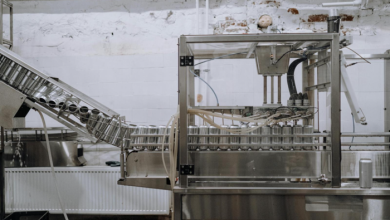
Manufacturing has long been the backbone of India’s economy, driving growth, employment, and technological development. Yet, it is also an industry that generates significant waste and environmental risk. From chemical by-products to defective materials, the waste produced in manufacturing facilities can be costly, dangerous and damaging to the environment if not managed properly. Fortunately, innovations in sustainable manufacturing are helping Indian businesses reduce waste, improve efficiency, and minimize risk, all while supporting compliance with environmental standards.
Embracing the Circular Economy
A key trend in sustainable manufacturing is the shift toward a circular economy. Traditional manufacturing follows a linear model, where raw materials are turned into products, which are sold, used and discarded. But in a circular economy, materials are continuously reused, refurbished, or recycled, reducing the need for raw inputs and minimizing waste.
Indian manufacturers are increasingly adopting circular practices. For example, textile companies are reprocessing fabric offcuts into new materials, electronics firms are recovering metals from old devices, and automotive manufacturers are refurbishing parts to extend product life. These innovations not only cut costs but also reduce environmental impact. And while many efforts focus on common recyclables, industries are also paying more attention to specialized streams, such as chemical by-products or industrial residues, where professional hazardous waste disposal services may be required to ensure safe and compliant handling.
Advanced Technology for Waste Reduction
Technology plays a crucial role in sustainable manufacturing. Sensors, AI-driven analytics, and real-time monitoring systems allow factories to identify inefficiencies and prevent waste before it occurs. For instance, predictive maintenance on machinery can prevent equipment failures that might otherwise produce large volumes of spoiled or defective materials. Similarly, AI-powered inventory management helps ensure raw materials are used efficiently, reducing the chance of excess stock expiring or becoming unusable.
Even when waste is unavoidable, innovations in material tracking make it easier to handle safely. For example, specialized software can monitor chemical use, flag hazardous materials and ensure proper disposal procedures are followed. This reduces risk to workers, nearby communities and the environment, while also helping companies comply with India’s environmental regulations.
Energy Efficiency and Resource Optimization
Sustainable manufacturing also extends to energy and resource management. Modern facilities are adopting energy-efficient machinery, LED lighting and smart HVAC systems to reduce energy consumption. Water-intensive industries, such as textiles and food processing, are implementing closed-loop water systems that recycle and purify water for repeated use.
These improvements not only lower costs but also reduce the overall environmental footprint of operations. In cases where manufacturing processes involve chemicals or toxic substances, efficient use of resources can significantly reduce the volume of waste that requires special treatment. Partnering with certified providers for hazardous waste disposal ensures that these by-products are handled safely, protecting both the workforce and the wider environment.
Real-World Examples from India
Several Indian companies are leading the way in sustainable manufacturing. Automobile manufacturers have introduced modular production systems that reduce scrap and simplify recycling at the end of a product’s life. FMCG companies are redesigning packaging to use fewer materials and increase recyclability. Even small and medium enterprises (SMEs) are adopting lean production techniques to minimize defects and lower waste output.
These efforts show that sustainability does not have to be a costly or complicated goal. With the right combination of technology, process improvements and professional support for compliance, businesses can reduce waste and strengthen their brand image.
The Role of Compliance and Safety
While innovations and technology are essential, they must be paired with strong compliance practices. Improper disposal of industrial by-products or hazardous materials can lead to issues and reputational damage. This is where hazardous waste disposal services play a crucial role. By partnering with certified providers, manufacturers can ensure that potentially dangerous waste streams are treated according to regulations. Integrating these services into a sustainable manufacturing strategy allows companies to focus on efficiency while staying fully compliant.
Looking Ahead
Sustainable manufacturing in India is fast becoming an imperative for businesses. Companies that invest in waste reduction and safe handling of materials are positioning themselves for long-term success. Emerging technologies, circular economy principles and robust compliance strategies are transforming the industry, proving that environmental responsibility and operational efficiency can go hand in hand.
By adopting these innovations, Indian manufacturers can reduce costs, minimize risk and contribute to a cleaner, safer environment. And while the focus may be on efficiency and innovation, ensuring proper hazardous waste disposal remains a critical part of a sustainable manufacturing approach.




